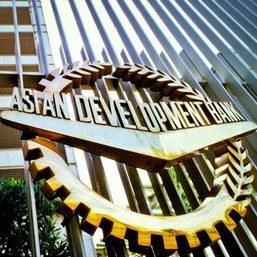SUMMARY
This is AI generated summarization, which may have errors. For context, always refer to the full article.

MANILA, Philippines – Hard discount grocery chain DALI has removed at least three of its in-house condiment brands from its shelves.
The reason? A legal complaint that pointed out how “confusingly similar” DALI’s brands were to some of the Philippines’ household staples.
At the center of this were three brands being sold by DALI: Kulina banana catsup, and Rajah Puro vinegar and soy sauce. These products closely resembled the packaging of Nutri-Asia’s popular condiment brands UFC and Datu Puti, respectively.
The Intellectual Property Office of the Philippines (IPOPHL) confirmed that it issued an injunction against DALI earlier this year and that it is still processing the motion for reconsideration, omnibus motion and pleading, comments and oppositions filed.
“The ketchup bottles and Rajah Puro vinegar and soy sauce products are included under the provision of the Order dated February 8, 2024,” IPOPHL told Rappler in an emailed statement on Tuesday, July 9.
Nutri-Asia’s legal representative, law firm Cruz Marcelo and Tenefrancia (CMT), filed the complaint citing trademark infringement, unfair competition, and copyright infringement.
“During the injunction hearings, our legal team has successfully established Nutri-Asia’s IP rights over two of the Philippines’ most popular household brands against DALI,” the law firm said in a statement on its website.
CMT described DALI’s brands as “confusingly similar to Datu Puti and UFC products manufactured and popularized by Nutri-Asia.”
DALI has since removed the products from its stores following the injunction, according to the law firm. IPOPHL also confirmed that DALI filed its compliance on June 10, 2024.
Aside from these possible intellectual property rights violations, DALI is also facing multiple consumer complaints as monitored by the Department of Trade and Industry (DTI).
So far, there are 13 consumer complaints against DALI, which were put forth in a letter by a consumer group to the DTI, DTI Consumer Protection Group Assistant Secretary Amanda Nograles said in a TeleRadyo interview on June 3.
The consumer group also raised alleged issues in terms of sanitation and priority lanes for senior citizens and persons with disabilities, she said.
The DTI has already issued a show-cause order against DALI.
Knockoff products?
Months before DALI landed in legal trouble, Rappler had already pointed out the strong similarities between Rajah Puro brand and Datu Puti. But Nutri-Asia’s brands were not the only ones affected.

For instance, DALI also sells made-in-Vietnam Tamaraw extra strong beer whose packaging comes in colors similar to San Miguel’s Red Horse. The discount grocery also sells Margie margarine, which looks like the household staple Star margarine – another San Miguel product.
You can also find Bakakult and Kingrox at DALI stores, which are similar in both packaging and name to Yakult and Clorox, respectively.
DALI stores also sell ice cream branded as Ice Dream with a logo similar to Selecta Ice Cream’s 3-in-1 red logo. Ice Dream is manufactured for DALI and carries the store logo also.

Rappler has reached out to some of the companies behind these products for comment but has not received any reply as of publishing time.
In discussing its business model and product lineup, DALI said that the quality of its in-house brand products “meets or exceeds the equivalent national brands sold in other national retail chains.”
“We focus on providing the same quality like the leading brand that we intend to replace but with significantly lower cost as the supplier does not need to spend on marketing, promotions, research etc,” DALI said in its website.
Powerful backers
DALI, which is operated by Hard Discount Philippines, now has around 630 stores in neighborhoods all over the Philippines. That quick growth was fueled in part by a multi-million-dollar investment by the Asian Development Bank (ADB).
In early 2023, the international lender announced that it would acquire $15 million worth of common equity shares in HDPM Sin Pte. Ltd. This was the ADB’s first investment into a hard discount retail company and its first agribusiness equity investment in the Philippines.
With the ADB’s stake in the company, DALI quickly caught the eye of another international investor. In March 2024, growth equity firm Venturi Partners announced that it would invest $25 million in the company, which would go to DALI’s “ambitious expansion plans.”
Private equity firms Navegar and Creador, along with other institutional investors and family offices, have also reportedly invested in the discount grocery chain.
But could the new legal troubles faced by DALI spook international investors? Rappler columnist Val Villanueva argued that the Asian Development Bank should rethink its investment in the hard discount grocery chain.
The Asian Development Bank has yet to respond to Rappler’s inquiry as of publishing time. – Rappler.com
Add a comment
How does this make you feel?
![[Vantage Point] Why the ADB should rethink its investment in Dali Hard Discount](https://www.rappler.com/tachyon/2024/06/thought-leaders-adb-investing-in-scam-.jpg?resize=257%2C257&crop_strategy=attention)










There are no comments yet. Add your comment to start the conversation.